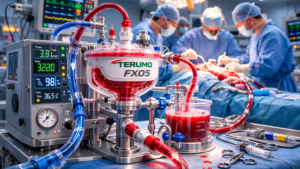Background: Coronavirus disease 2019 (COVID-19) can present with significant cardiac dysfunction, including cardiogenic shock. Mechanical circulatory support with an Impella device may be utilized in these patients to support and offload native right ventricle (RV) and left ventricle (LV) functions. This systematic review aims to describe clinical indications, management, laboratory data, and outcomes in patients with severe cardiogenic shock from COVID-19 treated with an Impella device.
Methods: A PRISMA-directed systematic review was performed and prospectively registered in PROSPERO. The databases accessed included PubMed/MEDLINE, Scopus, and ScienceDirect. Quality and risk of bias assessments were completed using the Joanna Briggs Institute (JBI) checklist for case reports.
Results: A total of 16 records were included in the qualitative synthesis; 8/16 (50%) of the patients were men. The average age was 39 years (SD: 14.7). The biventricular Impella (BiPella) approach was recorded in 3/16 (18.75%) patients. A total of 4/16 (25%) individuals required renal replacement therapy (RRT). Single-device usage was observed in three cases: 2/16 Impella CP (12.5%) and 1/16 Impella RP (6.25%). Treatment of COVID-19 myocarditis included a wide range of antivirals and immunomodulators; 8/16 (50%) cases needed ECMO (extracorporeal membrane oxygenation) support. Overall, only 2/16 (11.7%) individuals died.
Conclusions: Sixteen reported individuals have received an Impella implanted with a mortality rate of 11.7%. Concurrent use of RRT and ECMO implantation was often observed. Overall, the Impella device is an effective and safe strategy in the management of COVID-19-related cardiogenic shock. Future studies should include long-term results.
Keywords: BiPella; COVID-19; ECMO; Impella; SARS-CoV-2; cardiogenic shock; extracorporeal life support; fulminant myocarditis.







